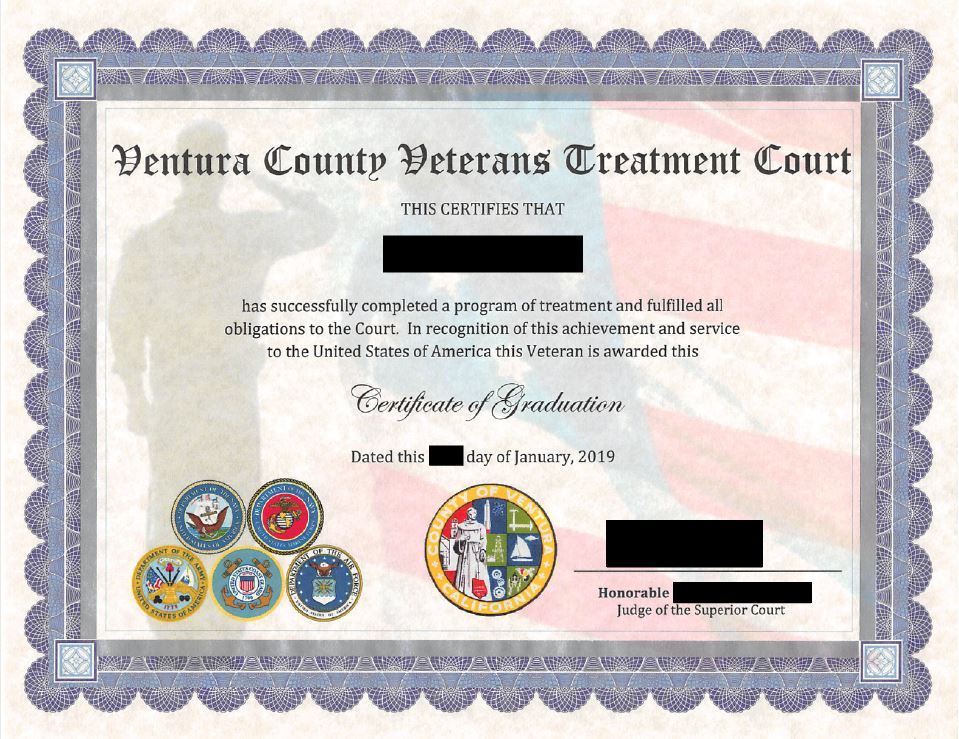
Military Diversion Program
As a veteran, I understand first hand the difficulties that veterans experience after completing their military service. Many factors affect a veteran’s ability to reintegrate into the real world. Recently, many of our veterans have served at least one combat tour and likely return with visible and “invisible” wounds. These “invisible” wounds often cause veterans to engage in unhealthy or perilous behavior as they attempt to deal with their stressors.
In California, the state has recognized the struggles that veterans endure. To assist veterans, the state has created a Military Diversion Program (“MDP”) serving as a sentencing alternative available to qualifying veterans/servicemembers (“veterans”) who have committed a misdemeanor offense. If the veteran successfully completes the MDP, the court will dismiss the charge(s) without the veteran having a conviction on their record.

What Is Pre-Trial Diversion?
The MDP statute defines pretrial diversion as “the procedure of postponing prosecution, either temporarily or permanently, at any point in the judicial process from the point at which the accused is charged until adjudication.” Traditionally, a criminal conviction requires that a defendant be found guilty of a crime or enter a plea of guilty/no contest, AND that the defendant be sentenced for that crime.
The MDP is a pretrial diversion program that, in most cases, will not require that a veteran enter a plea of guilty or no contest. In very few cases, a judge may require a veteran to have entered a plea of guilty or no contest prior to admitting the veteran into the Military Diversion program. In those situations, because the veteran is admitted into the MDP before sentencing, there is no conviction.
Once a veteran successfully completes the MDP, the charges are dismissed in their case and the arrest upon which the charges are based shall be deemed as if it had never occurred.
Who Qualifies for the Military Diversion Program?
The Military Diversion Program was created for veterans who have committed a misdemeanor offense and “may be suffering from sexual trauma, traumatic brain injury, post-traumatic stress disorder, substance abuse, or mental health problems as a result of his or her military service.” The MDP applies to any alleged misdemeanor violation ranging from DUI, possession of narcotics, assault and battery. Courts typically request that the veteran provide a letter from a doctor confirming the diagnosis and its relation to military service.

How Does a Veteran Apply for the Military Diversion Program?
To be admitted into the MDP, a criminal defense attorney will be required to file a formal motion requesting that the court admit the veteran into the Program. The motion is specific to each veteran’s case. The motion will consist of facts supporting the veteran eligibility and arguments for admittance into the program. If the court grants the veteran’s motion, the veteran will be admitted into the MDP and the case will be suspended pending the successful completion of the MDP.
What Happens Once Admitted Into the Military Diversion Program?
If the veteran’s motion is granted, the court will require the veteran to address and treat the veteran’s issues using resources available to the veteran. Often, this requires the veteran to participate in treatment at their local V.A. hospital or Vet Center. The required treatment plan usually lasts for a period of one to two years. During this time, the court will require that the treating facility file a progress report with the court and prosecutor at least every six months.
Contact Us If You Have Any Questions About MDP
We are very experienced in California’s Military Diversion Program. Contact us if you have any questions regarding MDP and you are a veteran, or know a veteran, charged with a misdemeanor crime.
Disclaimer
Thank you for visiting our website. Please note that this article is not intended to be legal advice. Rogers | Beltran LLP does not represent you until you have a signed retainer with the firm. The views expressed herein are for educational purposes only. The law constantly changes, and we make no representations or guarantees about the current or past validity of the legal analysis. If you have questions about the current state of the law in this area, feel free to reach out to our law firm for a free telephone or remote consultation (Zoom) or seek legal counsel from another reputable law firm.





